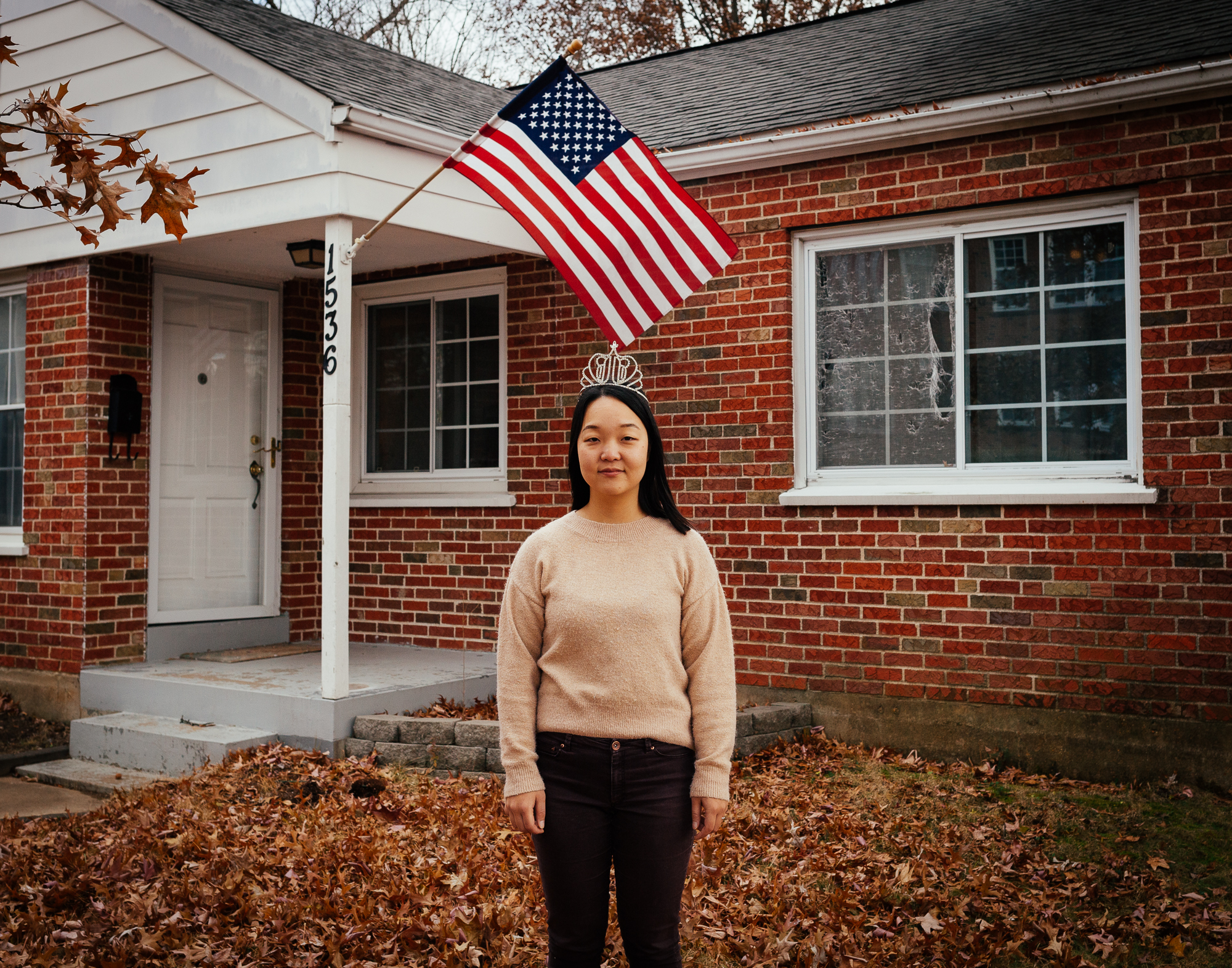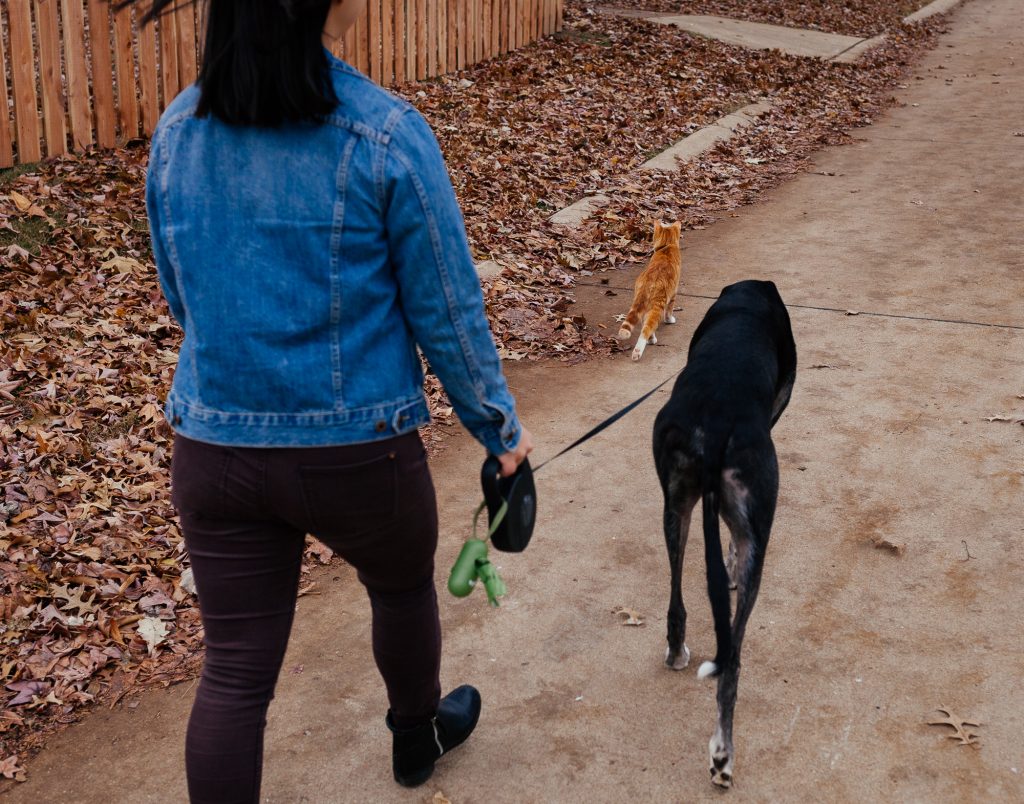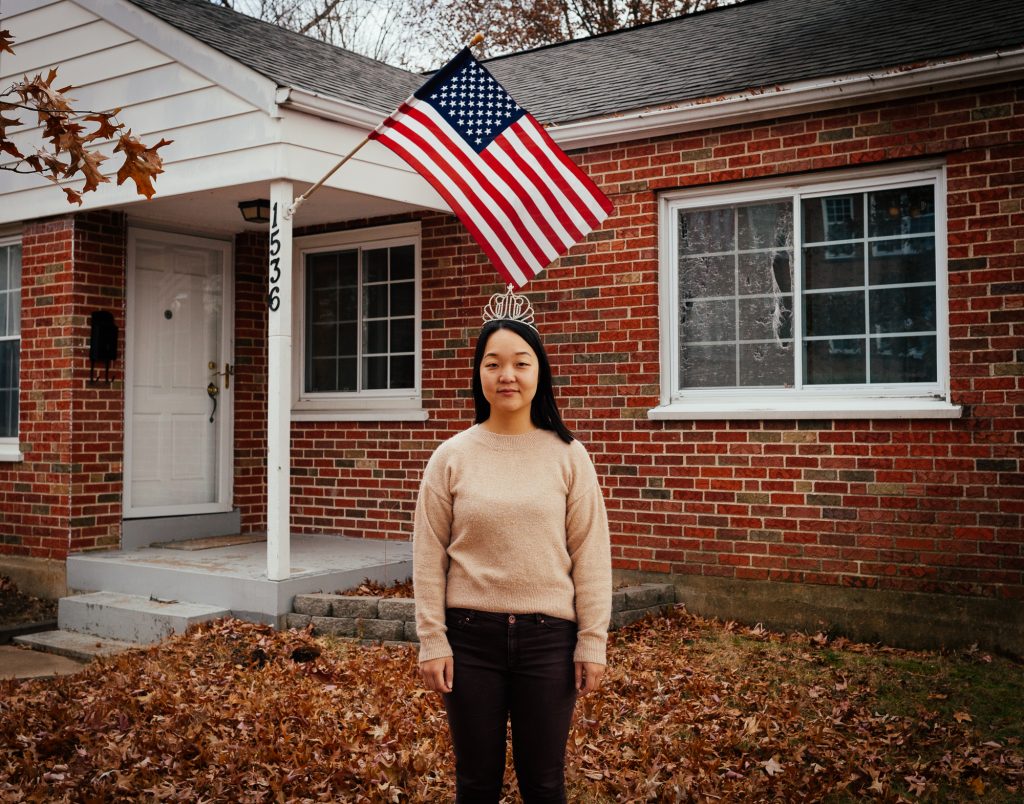
Childhood
Chungju, where Bomi grew up, is a small city surrounded by mountains. If you drive 15 minutes away, it is entirely rural. Bomi and her father spent a lot of time hiking in nature – memories she cherishes. Bomi’s extended family lived close by, and there were many family gatherings.
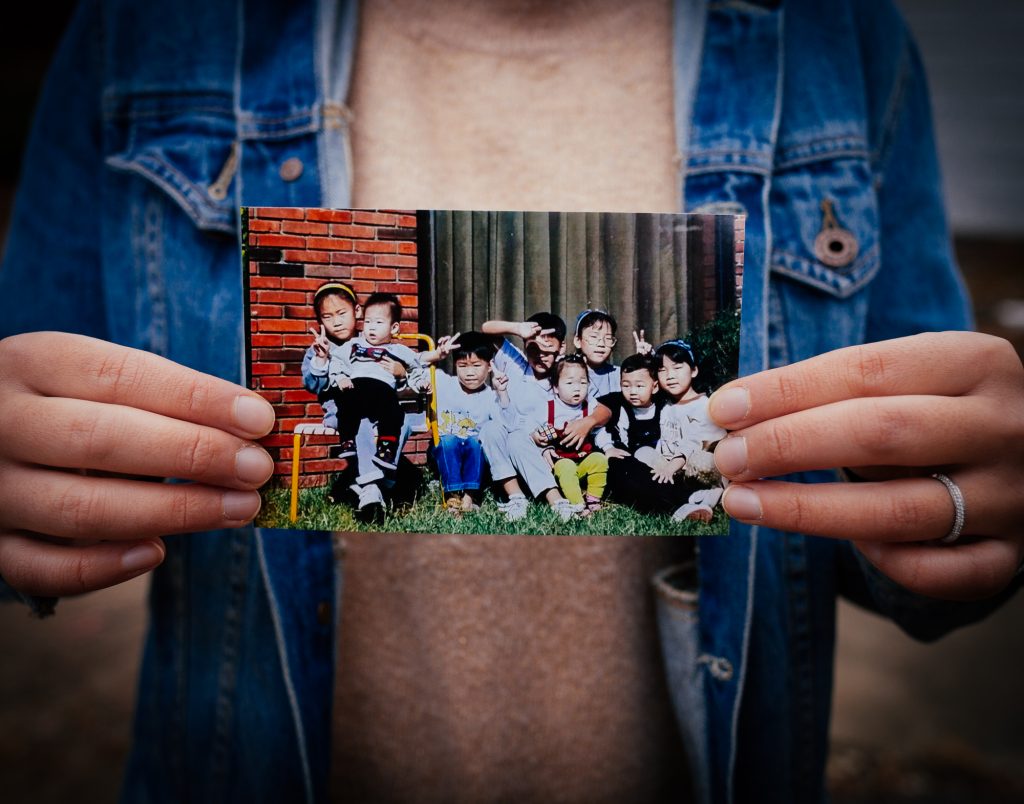
She has good memories of karaoke with her friends and going out to eat street food. Mostly though, her memories are of school.
“A lot of my memories from being a student in Korea are of studying and after school mentoring. It is an intense competitive education. A hobby was something I never got to have in Korea because I was so focused on school. It’s kind of sad.” (audio below)
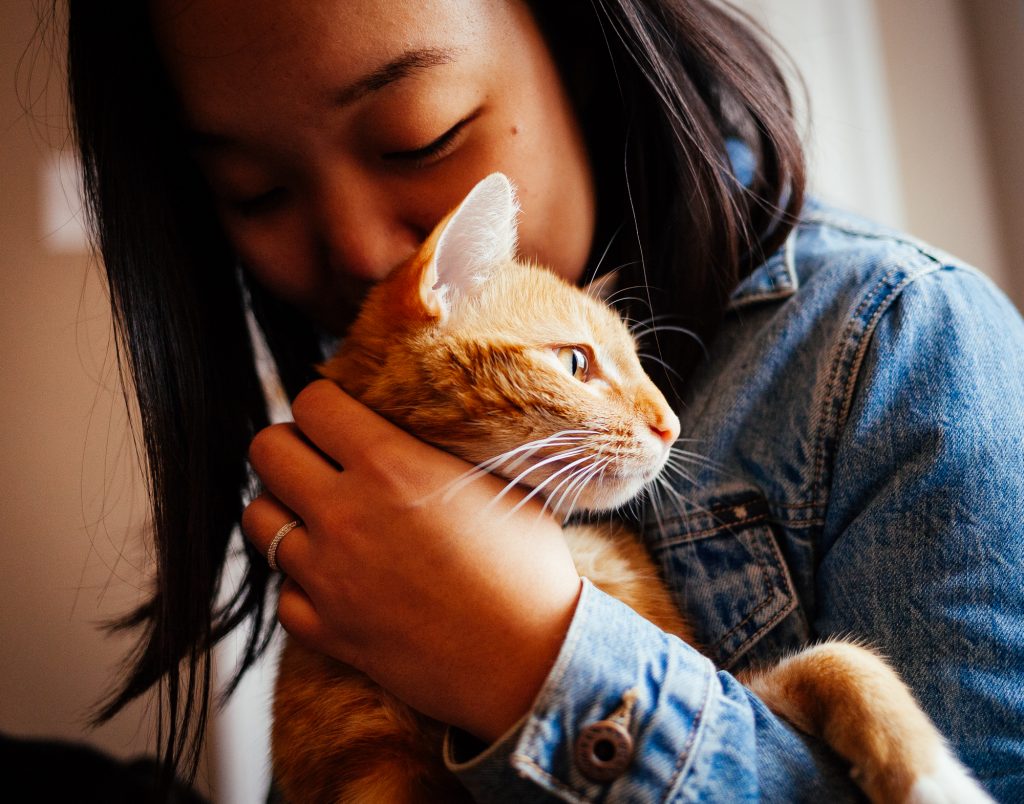
Bomi was a top student through middle school, but once she got to high school, she didn’t shine anymore. This realization affected her self-esteem, as she discovered for the first time that many people were smarter than she was. Her high school was “extreme” running from eight in the morning until ten at night with no weekends and no summer breaks. It was exhausting, but at the same time, it was normal – all the other students were in the same situation.
“I didn’t know American students get out of high school at three o’clock or that extracurricular activities even exist. You do what you are told to do and don’t know better. I didn’t think it was abnormal. Looking back, I think it is absolutely crazy.”
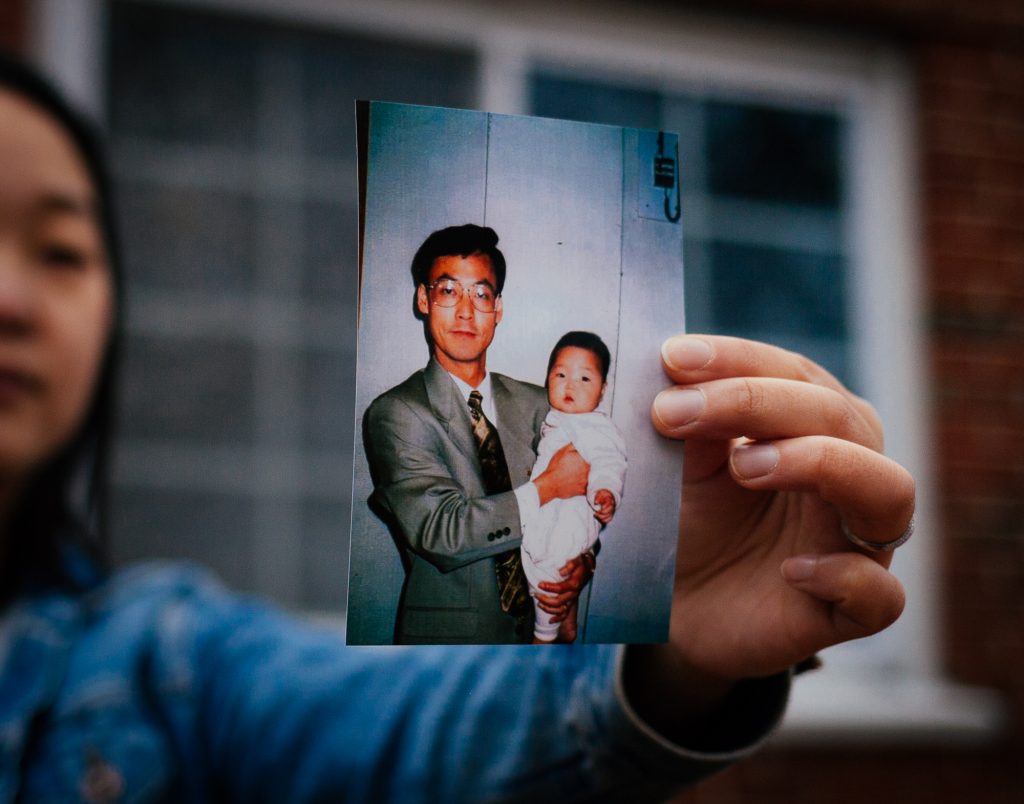
Growing up, Bomi had an uncommon household situation in Korea, as her mother was the ‘breadwinner’ and she is older than her father. She showed Bomi that she could be whoever she wanted to be.
“For her time, my mom is a superwoman – a very strong character. “
Bomi’s parents are “outgoing, crazy, super fun, and like to dance.” Her father loves to play the chopstick drums. Bomi is an only child, so it was very hard on her parents when at 16, their daughter left to the US.
“I thought it would be super glamorous like Hollywood parties and people on the beach. You don’t have a movie showing central Illinois; you see San Francisco or New York City.” (audio below)
International Student
Bomi first came to the US in 2008. She wanted to learn English, so the first thing she did was go to California to study at a language school. She figured all of the US would be like California, but that wasn’t the case when she arrived in Illinois.
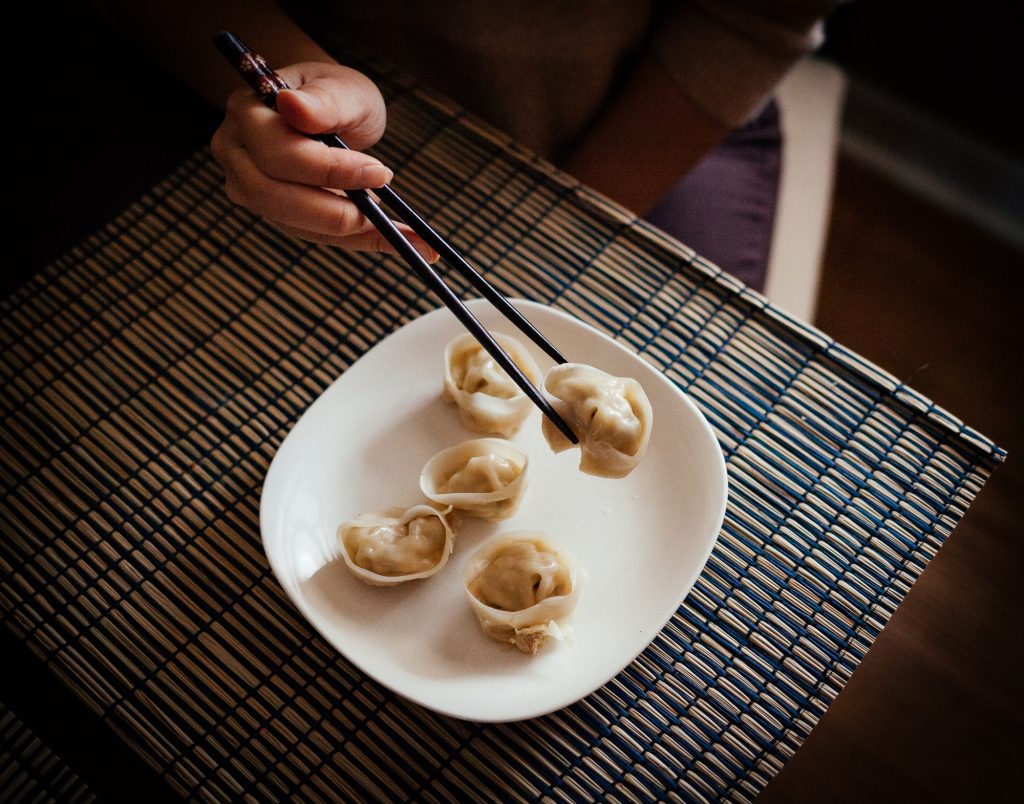
Bomi signed up for a one year exchange to attend Mater Dei High School in Breese, a town in rural Illinois. Her host family, who lived in nearby Trenton, hadn’t hosted before. They chose to host Bomi after reading in her application about how she could make delicious Korean food. They didn’t have children, and Bomi became their adopted Korean daughter.
“I was terrified for the first time being away from family in a totally different country. I always enjoyed meeting people and telling them about Korea – being an ambassador for Korean culture. When you’re in Korea, you don’t think about being Korean.” (audio below)
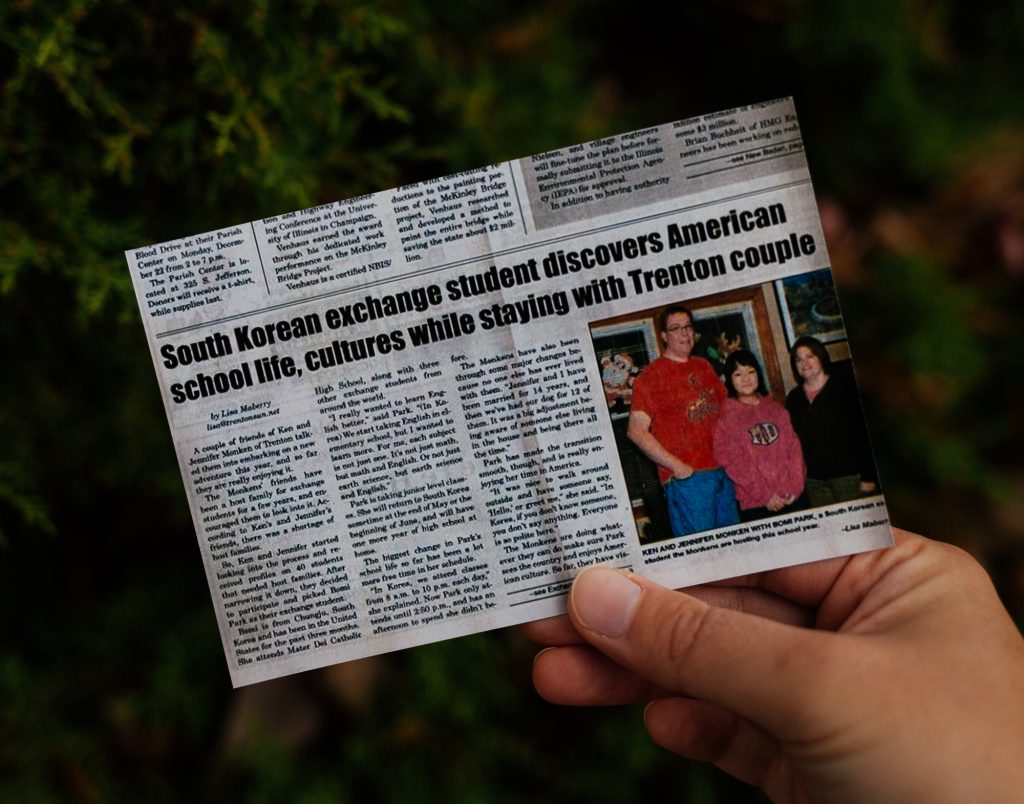
It was the first time the high school in Breese had exchange students. Bomi was surprised and impressed with how friendly everyone was towards her and the other three exchange students. Breese isn’t a diverse community, but luckily the other students thought it was cool to hang out with someone different.
“I like that people know each other. It helped me feel welcome. Everybody was so friendly and helpful. I have never experienced any racism or discrimination that I was really afraid of before I came here. What if they make fun of me or are mean? I was afraid of being bullied, but people are just curious about my story – people ask questions to get to know me.” (audio below)
She tried a lot of things she would never have done in Korea, like: play Ski pong (beer pong but using the local soda, Ski), go fishing, ride four-wheelers, milk a cow, or eat at Dairy King (not Dairy Queen). The first restaurant she went to was Steak N Shake; she was expecting something fancy. (audio below)
Bomi returned to Korea after her exchange year was over, but she felt a huge sense of loss leaving her host family. Luckily, they reached out and told Bomi that if she wanted to come back to the US and continue going to high school and college, they would love to host her again. When Bomi returned to Illinois, she excelled and went on to be her high school’s Prom Queen.
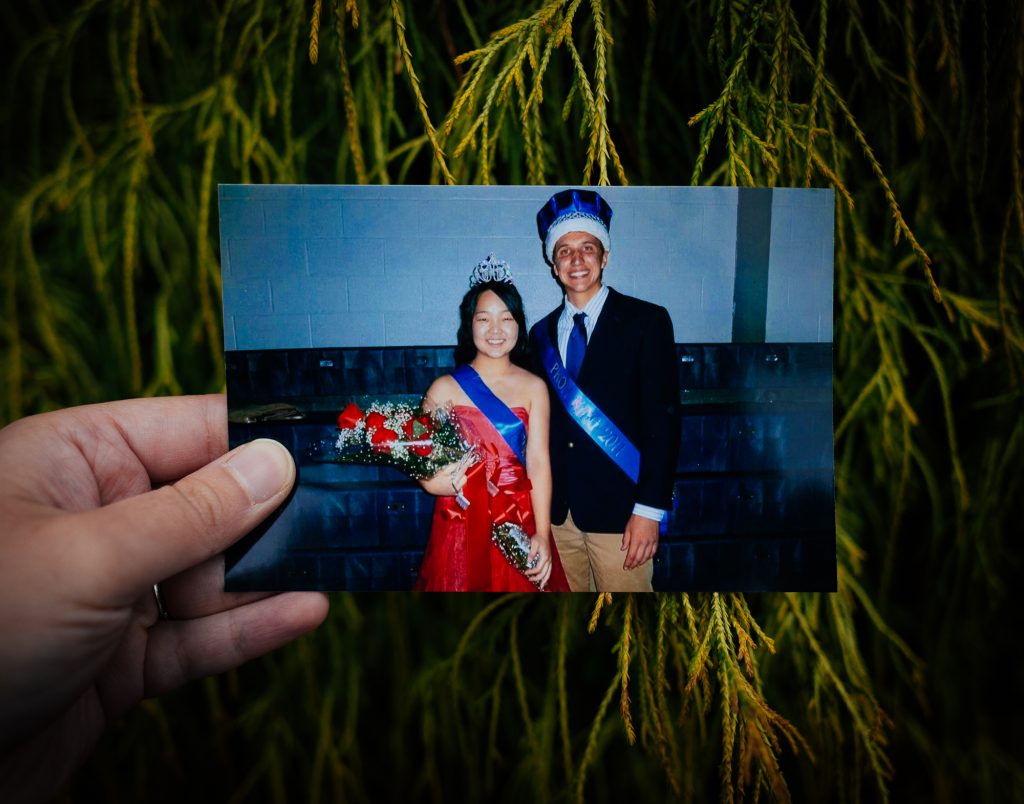
“I was prom queen – so that’s crazy. I’m not used to that kind of attention. I think I just didn’t have enemies.” (audio below)
After high school, Bomi attended McKendree University, a small private school in Lebanon, Illinois, where she received a lot of attention as an international student.
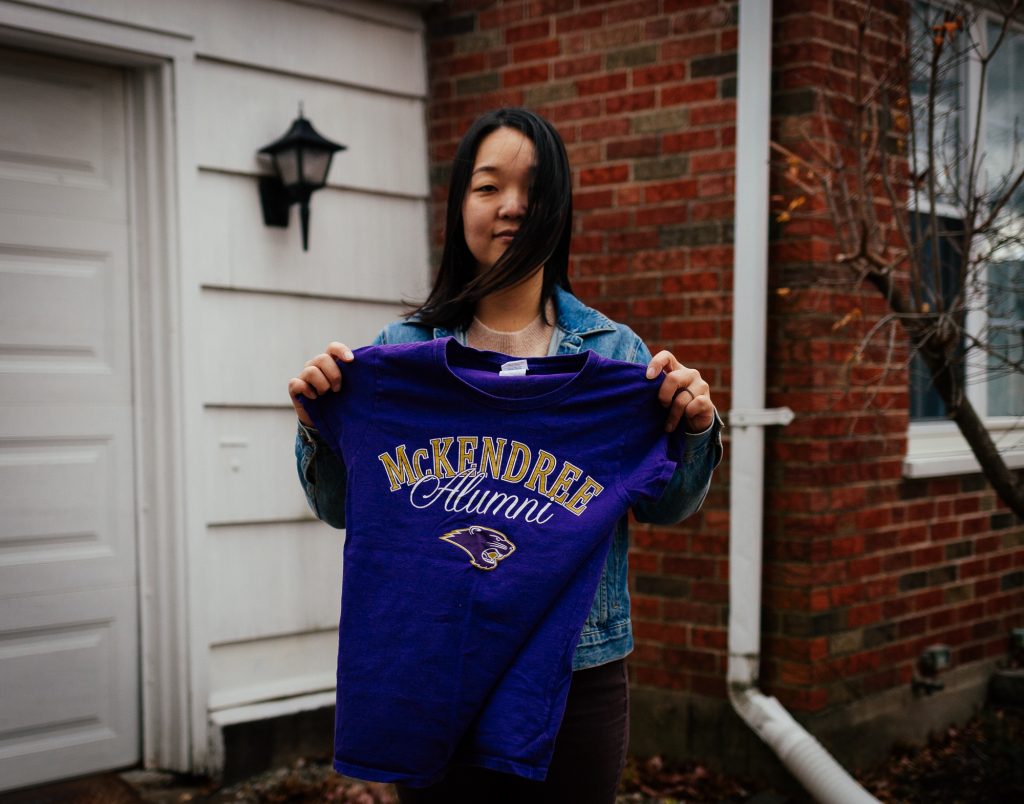
Bomi followed in her mother’s footsteps and majored in Education, but had a change of heart and switched to Psychology. She graduated in 2015 but didn’t want to leave the US. To remain in the country legally, Bomi needed to either start grad school right away or find a job. Grad school would be a lot of money, and she didn’t even know what she wanted to study next. She had a job lined up at the university for when she graduated as the international admission counselor and advisor. This would be her best opportunity to stay, so she took the job, thinking they would sponsor her visa. They didn’t. Bomi felt betrayed and knew that her time in America was running out.
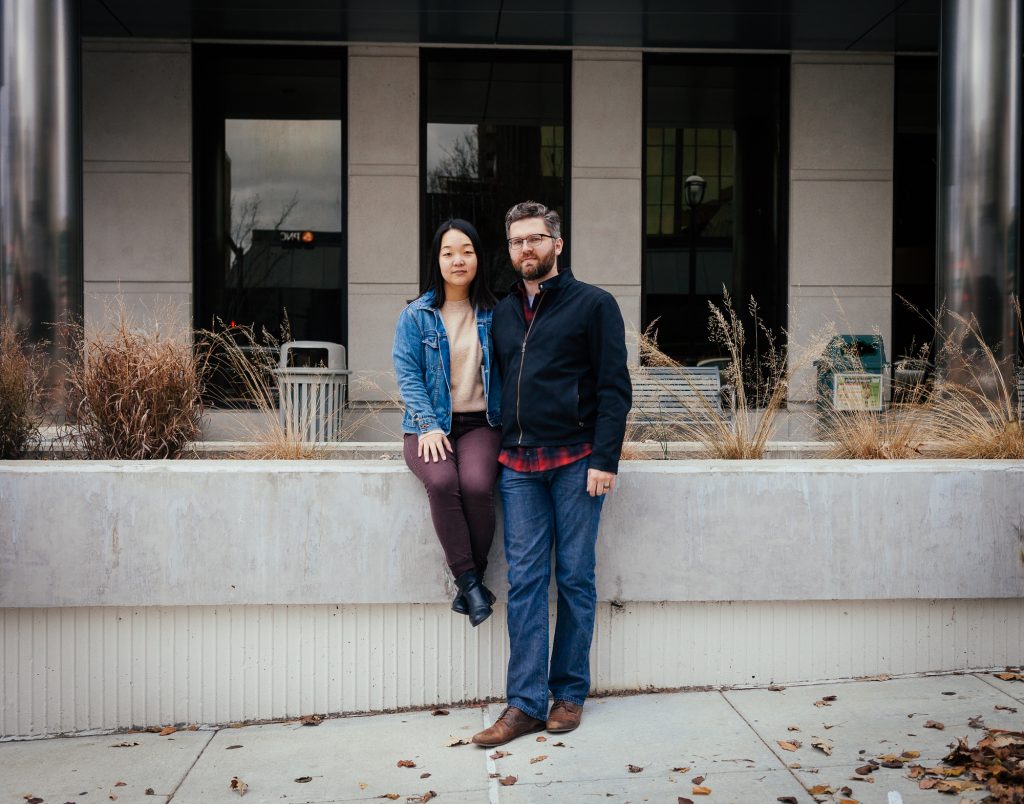
Meeting Adam
Bomi and Adam met online in 2016, right before she was going to need to leave for Korea. Adam was born in Canada’s capital Ottawa and moved to the US in 2000. Adam remembers their first date.
“I got out of the car to go up to the door to meet her, and I could immediately tell she was very uncomfortable. She was avoiding eye contact. I was trying to be as disarming as possible. I have a radar detector set up in my car, and I don’t think that helped her feel more comfortable.” (audio below)
Neither of them was ready for a serious relationship when they met. Bomi, primarily because she knew she was going to need to return to Korea soon. Still, they found themselves spending every weekend together hiking. She kept hoping some miracle would happen and she would be able to stay, but that never materialized. She was devastated to leave Adam, but they also weren’t at the stage of their relationship where they were ready for marriage. Bomi returned to Seoul and taught English, but she and Adam were always in touch. It didn’t take long for Adam to decide to fly to Korea to meet Bomi and her family. Adam had never been to Asia and knew little about the region, but he was ready to broaden his horizons.
For his first night in Korea, the family had prepared a six-course sashimi dinner. Adam was intimidated, nervous, but Bomi’s parents seemed to like him. Adam remembers the moment when he realized the seriousness of their relationship.
“The turning point was when we went to climb this mountain – it was brutal but incredibly beautiful. After that, I think I knew I was in love.” (audio below)
When Bomi and Adam discussed the idea of her returning to St Louis to live, Bomi was surprised that her parents seemed okay with that.
“I thought they were going to tell me I was crazy. They saw something in Adam and trusted him.”
If her parents had been against their relationship, Bomi doesn’t think she would have returned to marry Adam.
Marriage
Bomi returned to the US on a three-month tourist visa, and she and Adam decided to get married. They had barely known each other for a year – and most of that year, they spent apart – so, in hindsight, they think it was “a pretty crazy decision.”
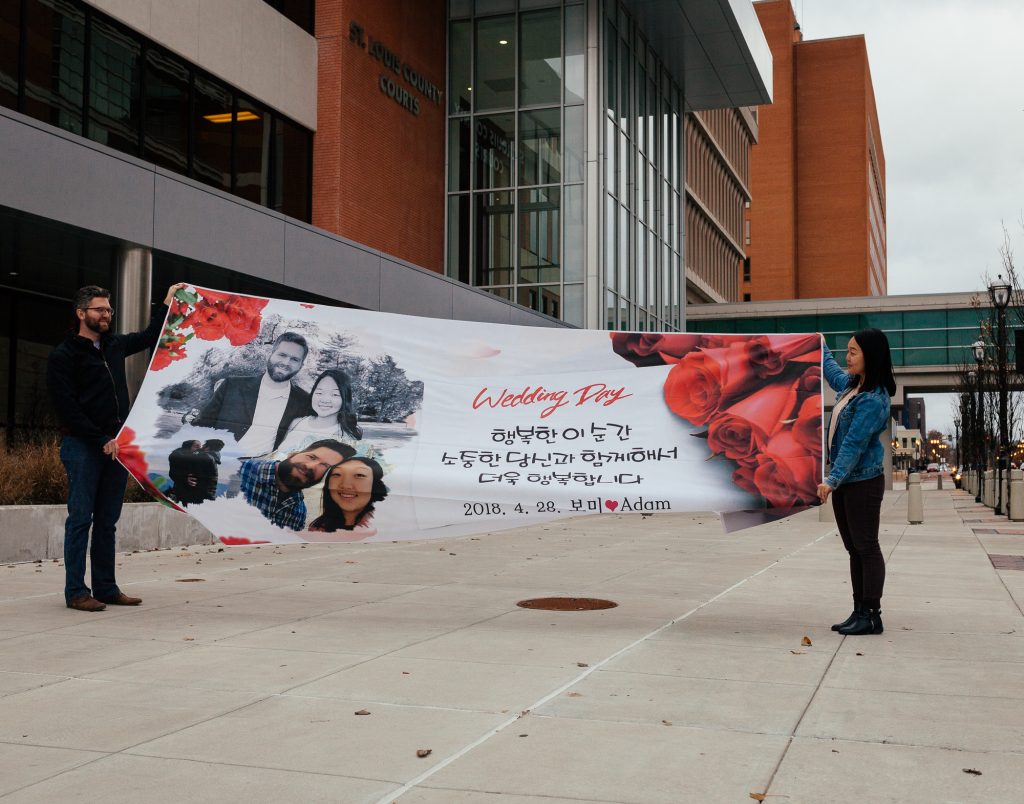
Bomi’s father created an enormous banner [see the above photo] for their reception that reads, “This moment is more precious because it is shared with you.” They love that the only English words on it are “wedding, day and Adam.” (audio below)
It was a strange experience for Bomi, being in the US, and waiting for work authorization. She was used to being active and involved – working and making money. She spent her days stuck at home, cleaning, and cooking.
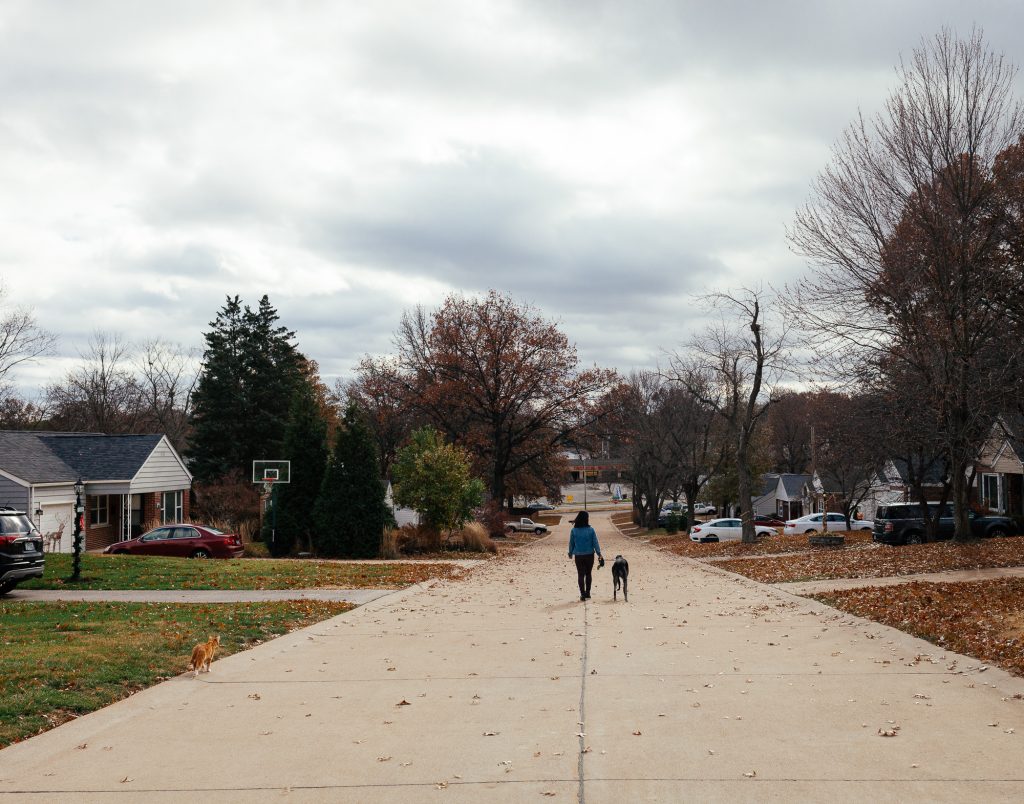
Midwest
Bomi likes the fact that St. Louis isn’t too big – it’s just big enough, affordable, and it has a small-town feel. She likes how it is a place where you can make your mark, and “everybody knows each other through somebody.”
“It is my second home. As long as I’ve been in the States, this is what I know. It is weird to say you like the Midwest, but I like the Midwest. I feel more at home here than I do in Korea now.”
Bomi feels like it was in the US, where she started thinking for herself.
“A lot of the things I have strong opinions about are from the influence of living here. Things I wouldn’t have been exposed to or thought about in Korea, I got to have an opinion about here. I’m not an American, but I feel like I’m not super Korean either.” (audio below)
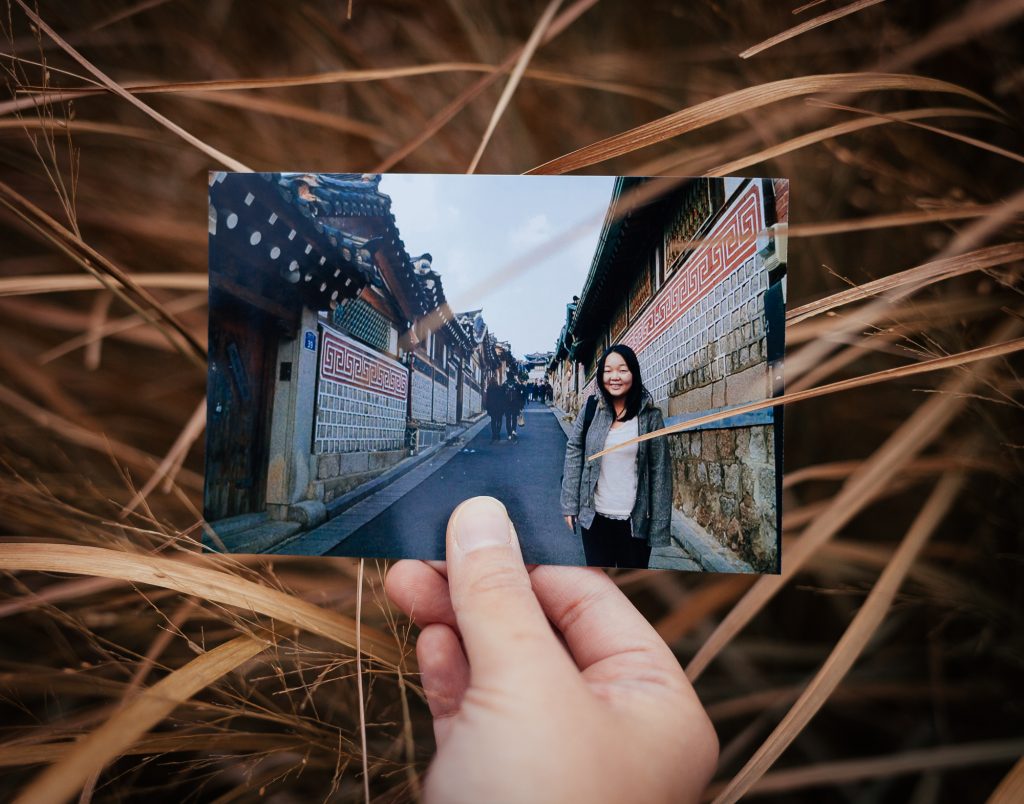
Identity
Sometimes Bomi feels guilty for not being more connected to her Korean roots.
“I feel like I’m a bad Korean. I’m not involved in the Korean community and I don’t go to the Korean church. I really don’t do Korean stuff, and don’t hang out with a lot of Korean people. I think I am very integrated with everybody else here.”
Looking at Korea from the outside, Bomi realizes the country’s issues around sexism, patriarchy, and lack of freedoms. Before coming to the US, for example, she had never thought about same-sex marriage.
“Same-sex marriage is not something we talk about in Korea. Growing up, I thought Korea didn’t have any gay people. We don’t talk about sex or sexuality. I know one gay person in the entire country, and he isn’t my personal friend – he’s a celebrity.”
Social justice issues that she wouldn’t have contemplated or cared about in Korea are now the things she cares about thanks to her exposure to them in the United States.
Bomi loves her pet dog and cat. Jet is an old rescue from a greyhound race track in Tennessee that Adam adopted. Bomi describes Jet as a “super whiny, anxious, couch potato, very dumb, and loves going on W-A-L-K (can’t say that word).”
Lion, the cat, is high energy, curious, and always hungry for odd things like flour and white mushrooms. He loves sucking on fleece blankets to sleep. Lion, in line with his peculiar personality, started joining Bomi and Jet for walks. Neighbors with kids will come out to watch as Bomi, her dog, and her cat, walk by.
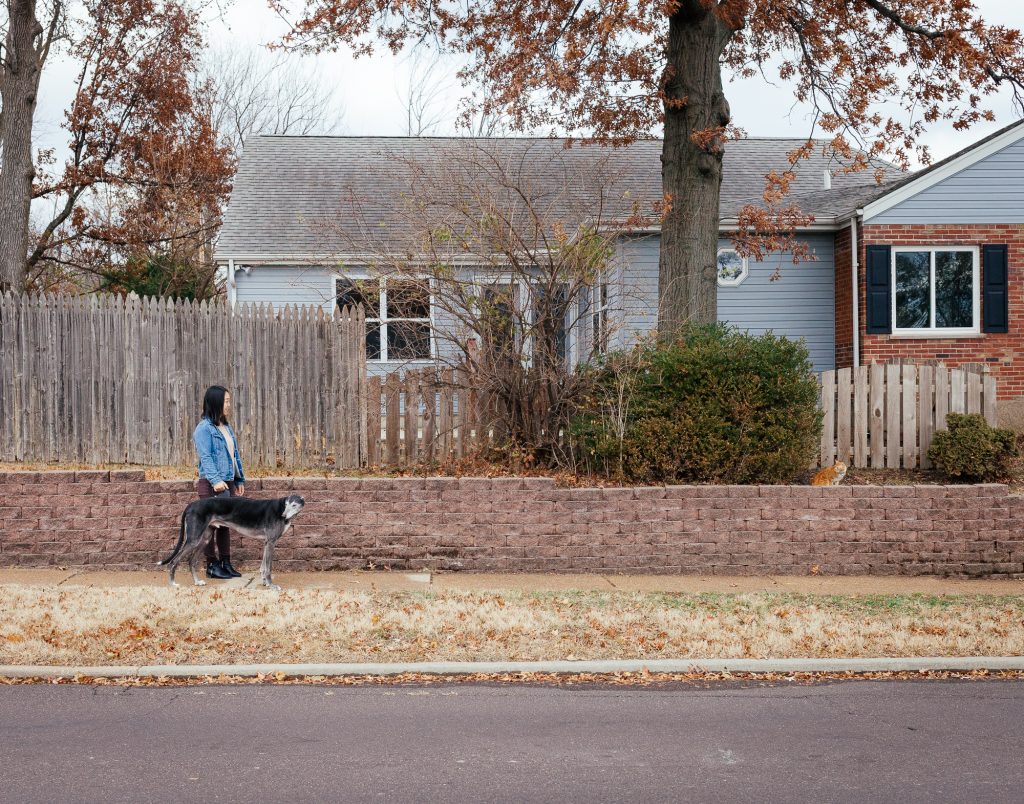
“Everyone knows I’m the one with a greyhound and a ginger cat following.”
St. Louis Mosaic Project
Bomi works as the assistant project manager at the St. Louis Mosaic Project run out of the World Trade Center St. Louis. The Mosaic Project is a regional initiative to attract people born outside of the US to the area and retain them. As an immigrant herself, Bomi feels a personal connection to the project.
“It is heartwarming to see people having a great experience in St. Louis, like I have.”
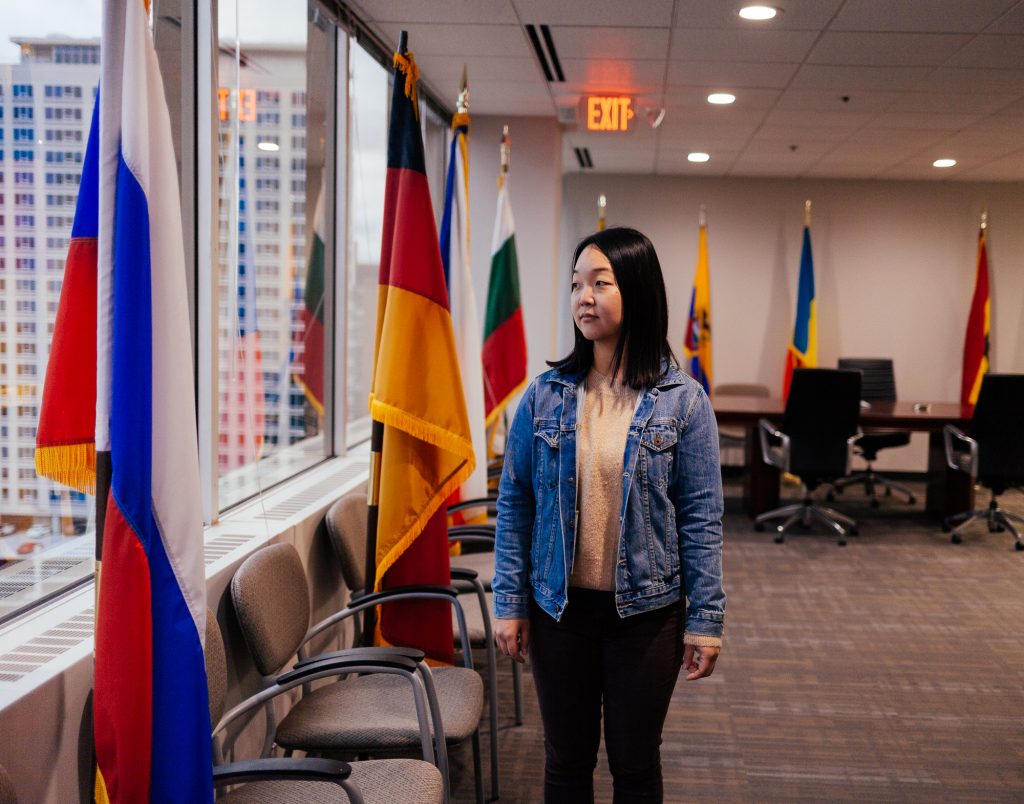
Before they employed her, she had been volunteering for the project. She loves that her work is rewarding, and she gets to meet people from all sorts of different backgrounds.
“I feel like I’m a small part of something big.”
One project that Bomi is particularly proud of is the International Mentoring Program Meetup Group. Many families that move to St. Louis have one partner (usually the husband) who has the job/routine/friends. In this case, the spouse (most often the wife) feels left out and doesn’t know where to go or what to do. This meetup group matches the lost spouse with a local woman in St. Louis. This project grew to involve 60 local women and is advantageous for them, too; it connects them to a person from a different background.
This project is personal for Bomi since she has been in their shoes before. Bomi remembers how “unsuccessful, useless, isolated, defeated” she felt after she had first applied for her green card. Bomi, unlike most of these women, had the advantage of already having been in the US for a decade. When they have events and invite their husbands, Bomi can see these women glow as they introduce their partners to their network of friends.
“The whole family has to be happy to stay in St. Louis, and this is what retains people.”
Adam is keen on learning Korean. He finds it very hard, but fascinating how there are so many customs embedded in the language. “In Korean, there are four or five ways of saying everything, depending on who you are talking to.”
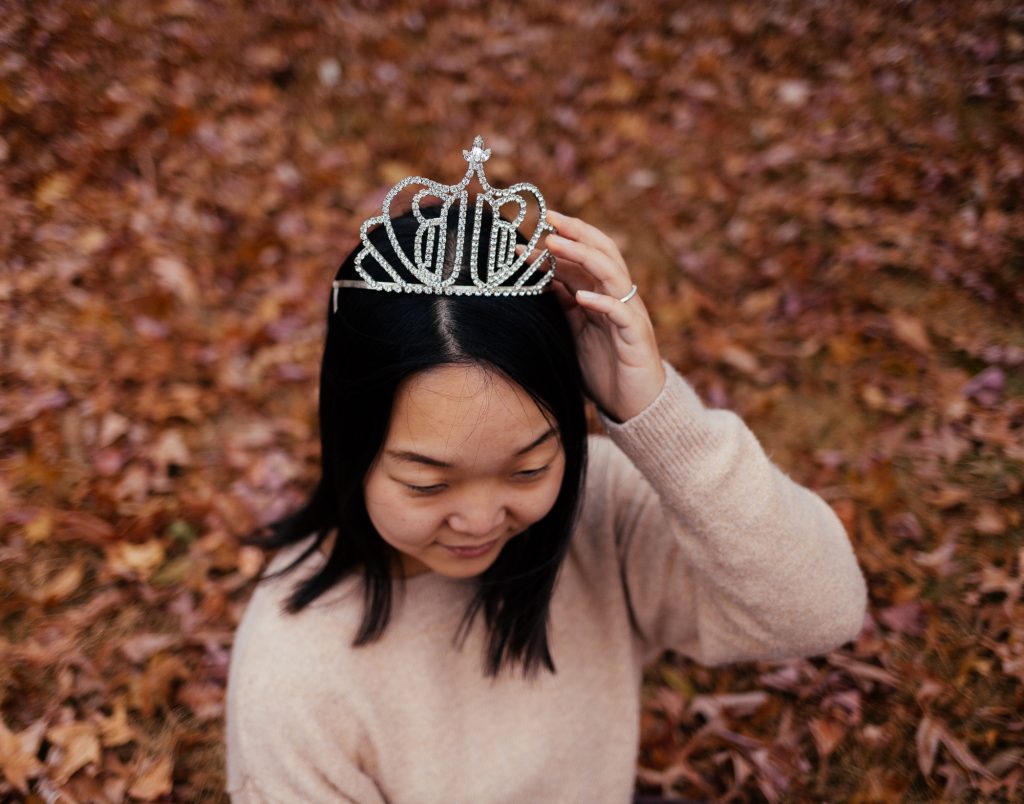
Bomi loves her life in Missouri and feels like she has many people to thank – like her host family and the people at Mater Dei High School and McKendree University who saw something in her.
“They gave me a sense of belonging – something people always struggle with.”
Future
She has felt valued and appreciated here. She would like to return to university eventually, and “be a master of something,” but she doesn’t know what yet. For now, she enjoys her job. Her dream is to have her family in St Louis with her.
“I’m an only child, so I think about what I am going to do. I don’t see myself living in Korea. The older I get, the more I think about how I want my parents to be around. When Adam and I have children of our own, I want my parents to be around.”
Adam and Bomi are in the process of deciding whether or not to put roots in St Louis – a place neither of them is from originally. It is the place both of them have lived the longest as adults.
#FINDINGAMERICAN
To receive updates on the book release and exhibition of “Finding American: Stories of Immigration from all 50 States” please subscribe here. This project is a labor of love and passion. If you would like to support its continuation, it would be greatly appreciated!
© Photos and text by Colin Boyd Shafer | Edited by Kate Kamo McHugh. Quotes edited for clarity and brevity.
